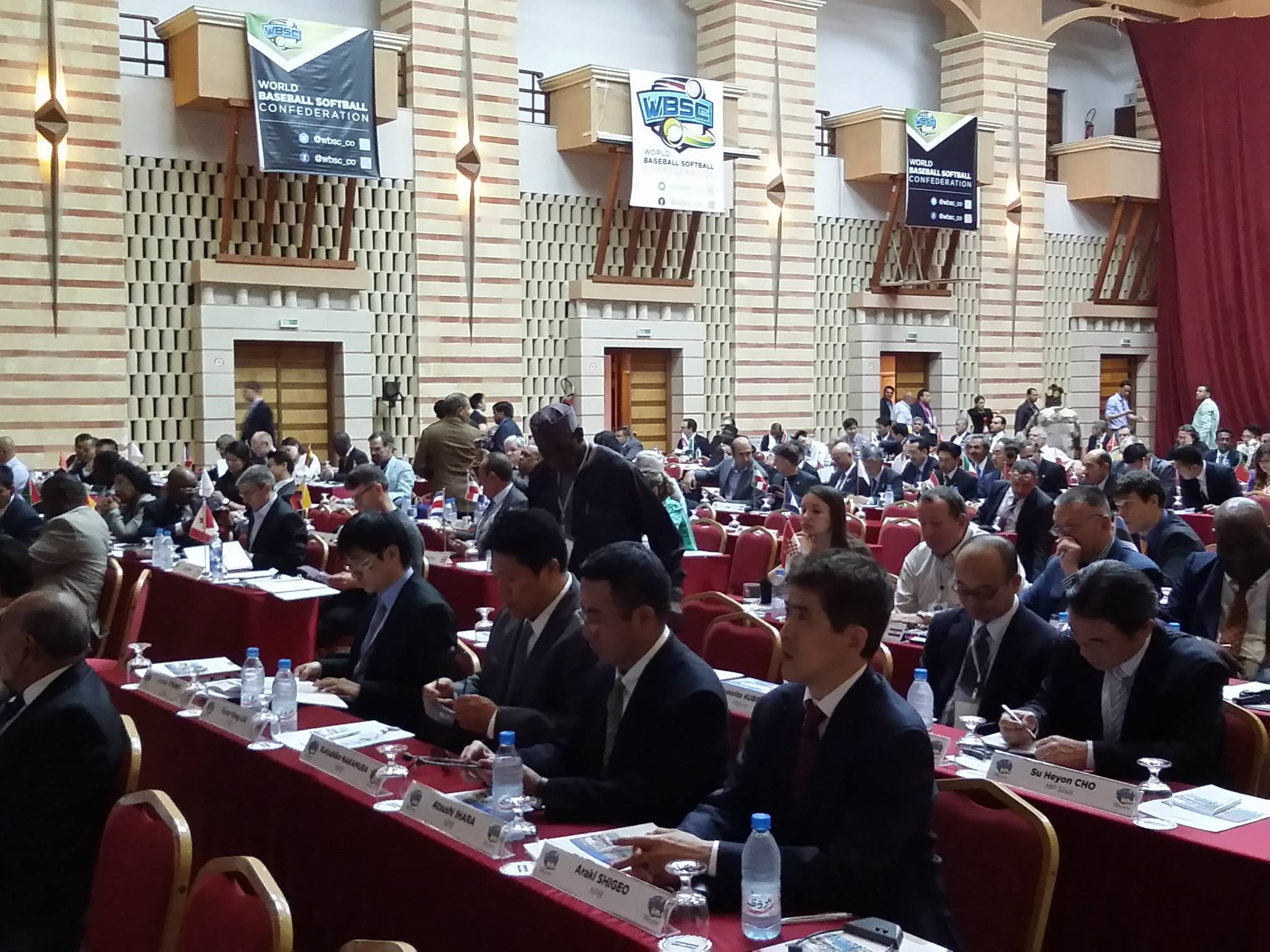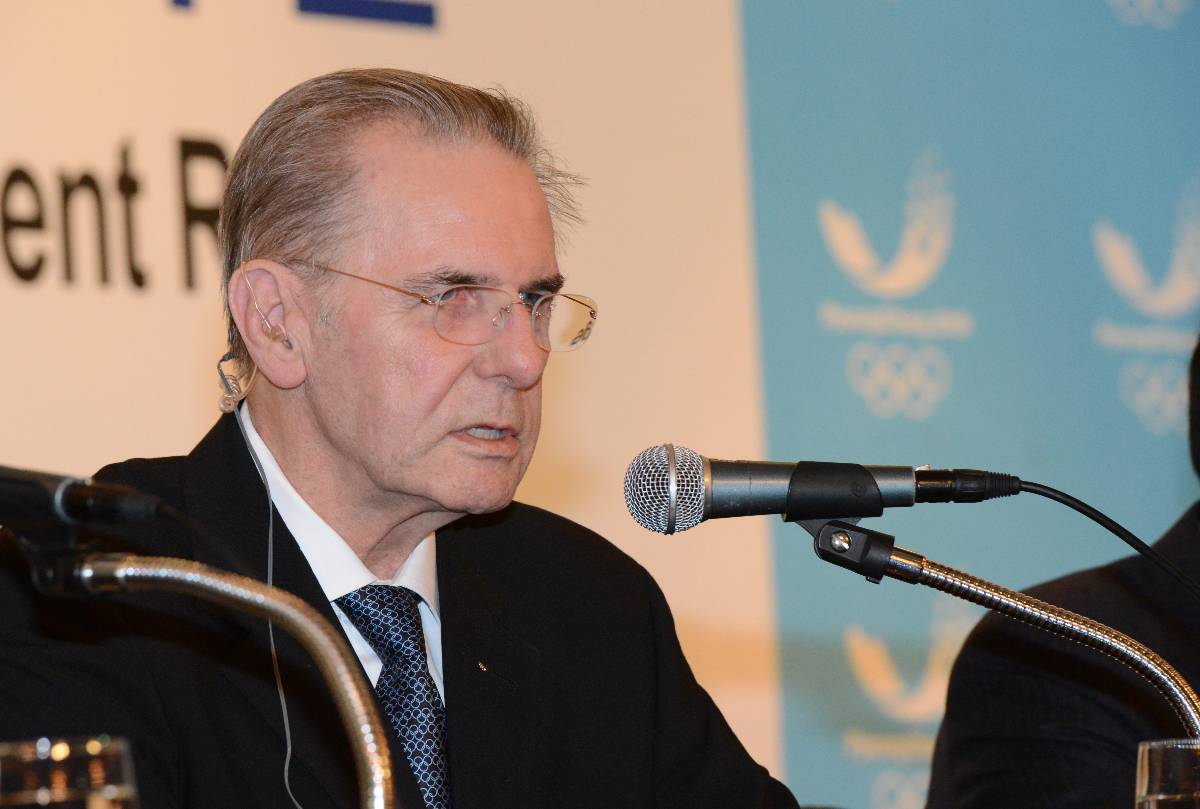International Olympic Committee news releases are written in distinctive code. In an otherwise anodyne six-paragraph release issued a few days ago on autonomy and good governance, the IOC dropped a bombshell. For years, Iran as well as a number of Arabic countries have taken sly steps aimed at denying appropriate recognition to Israeli officials or athletes; further, athletes from these countries have mysteriously feigned ailments or been ordered not to compete with Israelis. The new IOC president, Thomas Bach, is seemingly now keen to send a strong signal that on his watch this sort of thing is not likely to be tolerated.
To be clear, the release itself hardly makes any grandiose pronouncements.
But the signal would seem strong.
It’s spelled out in the fourth paragraph, the IOC noting that at the instruction of the president himself, a task force has begun an investigation into an “incident” that “may represent discrimination” against the Israeli baseball/softball federation at the World Baseball Softball Confederation general assembly last month in Hammamet, Tunisia, a resort about an hour south of Tunis.
This marks the first time in recent memory the IOC has pointedly taken such official note of such an “incident” involving potential “discrimination” waged against the Israelis.
The details of the “incident,” moreover, make it abundantly clear the president of the Israeli baseball federation, Peter Kurz, absolutely was singled out and made the target of discrimination.
Not only that: though he was not harmed, he was left throughout the congress feeling unsafe and vulnerable. Given that security -- as the IOC is always given to say, is paramount issue No.1 -- that can never be tenable, particularly given the lessons of the 1972 Munich Olympics.
The question now: what is to be done?
Tunisia is among those nations that have inappropriately mixed politics with sports when it comes to Israel. Last fall, for instance, Tunisia’s tennis federation ordered its top player, Malek Jaziri, ranked 169th in the world, not to play Israel’s Amir Weintraub in the quarterfinals of a lower-tier ATP event in Tashkent, Uzbekistan.
The WBSC congress, its first after the merger of the international baseball and softball federations, took place May 10-11.
In a May 12 letter to newly elected WBSC president Riccardo Fraccari, Kurz wrote that despite the history between the two nations he had been assured he and Israel would be appropriately “recognized and honored” per usual Olympic-style protocol at the assembly. But “unfortunately, the night before the Congress, I was asked to sit without my national flag and country sign, for ‘my own well being’ and for the sake of the host country.”
In a telephone interview Tuesday, Kurz said, “I went there with assurance the Israeli flag would be shown,” adding a moment later, referring to Tunisian authorities, “They told me that for my own benefit it was probably better if I didn’t sit with the flag. I agreed, for my own safety. Afterward, when I left, I sent them,” meaning the WBSC, a “letter of protest.”
Israel was the only nation so singled out at the conference. The merged confederation represents more than 100 nations; softball alone is played in more than 140.
Bach has made autonomy and governance issues — which typically do not receive much, if any, press — one of the mainstays of his “Agenda 2020” IOC review and potential reform process, now working its way toward an all-members session in Monaco in December.
In governance, the president has sought to underscore the obvious: without consistency, everything can get very shaky, and very fast.
"The health and viability of the Olympic movement start and end with issues of ethics and governance," said Atlanta-based Terrence Burns, a noted Olympic strategist. "These principles are embedded in the Olympic charter and have guided the movement since 1896."
Bach has also, since his election as IOC president in Buenos Aires last September, sought to highlight the import of fair play and respect, both on and off the field of play.
He has cited Nelson Mandela: “Sport can change the world.”
In a late April speech at the United Nations, he reiterated the words he used in closing the Sochi Games, when he urged “the political leaders of the world to respect the Olympic message of good will, of tolerance, of excellence and of peace” and appealed to “everybody implicated in confrontation, oppression or violence: act on this Olympic message of dialogue and peace … have the courage to address your disagreements in a peaceful, direct political dialogue.”
If the IOC in prior years might have been perhaps more inclined to be more passive about what happened in Tunisia, it’s clear a different sort of reckoning now awaits.
Uncertain, though, is the full scope and nature.
For its part, the WBSC has also launched its own inquiry. It will “fully cooperate” with the IOC to determine “warranted sanctions” and “any other course of action,” Fraccari said in an email sent early Wednesday from Tokyo.
Tangled up in all this — albeit as a side issue, though one that has sparked some concern within the WBSC — is the federation’s positioning going forward as it seeks to get baseball and softball back onto the Olympic program, perhaps as soon as the Tokyo 2020 Summer Games.
Fraccari said, “Good governance, autonomy and upholding the Olympic values are absolutely paramount to the WBSC, and the IOC’s involvement in this highly important matter is very much valued -- and any guidance that is provided will be strictly followed.”
He also said, “I am deeply, deeply disappointed with this incident; the flag of Israel should have been proudly on display alongside the other flags.”
He said, “On behalf of the WBSC – and in my own name – I personally apologized to President Kurz and the Israel Association of Baseball following the incident, and I have given IAB every assurance that the newly elected WBSC executive board will handle this case in a swift, just and decisive manner, so that no such occurrence -- or such a scenario – is ever repeated.”
Kurz said the apology came in a telephone call last Friday: “He said it shouldn’t have happened.”
Fraccari also said this: “This regretful, isolated incident in no way reflects what baseball and softball represent — baseball and softball have a long and proud tradition of promoting racial diversity and multiculturalism, and have helped challenge racism, stereotypes and have helped to tear down both social and gender barriers."
In that spirit, Bach has, and with ample reason, pointed to Nelson Mandela. The Olympic movement has long venerated, again with sound reason, the U.S. track star, Jesse Owens.
In this instance, perhaps the time has come to look to another American icon, the baseball player Jackie Robinson. He literally changed the face of professional sports in the United States. Throughout his life, he proved an exemplar of peaceful tolerance. Each year, on April 15, in a celebration of his life and achievements, is Jackie Robinson Day in Major League Baseball; all the players, coaches, managers on both teams, even the umpires, wear Robinson's No. 42.
The irony of the "incident" in Tunisia is that the other candidate to have hosted the WBSC assembly was Los Angeles; of course, that's where the team that Robinson played for, the Dodgers, moved to from Brooklyn, and that's where he grew up, in nearby Pasadena, California, and went to college, at UCLA.
The federation opted to have the congress in Tunisia on the theory that staging it in Africa would be a part of promoting a growth strategy for their games; after all, in January, Uganda opened central Africa's first-ever national baseball and softball stadium.
It was left to Kurz, in his letter, to point out the obvious: "Future Congresses should not be held in countries that do not respect or recognize the rights of other countries, and you had over 145 countries to choose from."



